|
|
||||
Crossing the Valley Project
Introduction During this assignment, students were to conduct interviews with migrants who came to the United States after 1965. I chose to interview my own mother, Mitra Delpazir. Part of the assignment also was to provide a detailed analysis of migration and combine it with that of the experience of the migrant. Hopefully the presentation that is to come provides a complete an eye opening adventure for the reader, while informing them of migration issues that exist around the world.
The Story of My Mother Mitra Delpazir
Hello, my name is Mitra Delpazir and I am going to be talking of my
journey to the United Stated from Tehran, Iran. It all began when I
was sixteen years old. My father, who was a Russian architect who
moved to Tehran years ago, decided I was being a bad child. He
decided that before things got any worse that he wanted to move me
to the United States. My father had ties to the embassy in Shiraz,
Iran because At first my intentions were of any sixteen year old, I just wanted to party, meet boys, and make friends. It took me about six months to pick up on the language through body language of others as well as help from my brother. It was pretty difficult, especially in school when people would tell me that I’m a prostitute was a greeting, instead of hi how are you, I figured out the truth about that one fast! Aside from that I became popular fast and I decided to stay in the United States and pursue my dream as a Beautician.
My father helped put me through beauty school when I
was about 21. Ever since I’ve been doi
Although before my arrival to the U.S. I can say I
was skeptical and just wanted to go home, but now I call the U.S. my
home. I only
Analysis After my discussion with my mother I realized that there is a lot about her and our past that I was not aware of. It’s funny how every morning you wake up and you really have no idea how your family or you even ended up at your current location. If it weren’t for my mother’s journey to the United States, I can only imagine what my life would be like. There are so many gender differences, power struggles, and differences in economy and politics.
I feel like if I would go
back to Iran, I would have a major problem with the way women are
treated. For example, the shawl wearing, and basically the women
are treated as less in status then men. Men in Iran are seen as
heads of the household, and women basically are bossed around. If a
woman is
Migration has been going on for
hundreds of years. Money is also a key factor in migration. For
example in Voyages by Cathy A. Small, she explains how way
back in the 1880’s money was introduced to the Tongan’s by the
European’s. She explained that before the Tongan’s were introduced
to money, they used Tapa cloth as a form of status, yet when the
European’s explained the riches that could be bought, the Tongan’s
desired this new found item called money. She states, “Money was
introduced to Tonga by European Missionaries in the nineteenth
century, and was something to be used in the interaction of Tongans
and Europeans…Imported foods, like imported goods generally,
This brings me to my next
point, that in some places around the world, an increase in wages
brings more individuals from poorer countries to more economically
rich contries, such as between Mexico’s and the United States.
Mexico is a country that is not necessarily poor, but is not as rich
as the United States. This is why a lot of individuals are coming
into the United States from Mexico. In an article by Maria
Guadalupe Torres titled We Are Not Machines: Corporations that
bring jobs must bring justice too, she states how most of the
maquiladora workers barely make enough
Although places like the United Stated, the United Kingdom, and many other wealthy nations offer a lot of opportunity, the journey is not easy. Every individual must basically start from the bottom, unless they have links in, like my mother fortunately did. The journey is vigorous and takes time, but until other nations who are not at rich such as Mexico, makes changes in their economy, the more wealthy countries will keep receiving immigrants.
|
||||
|
||||

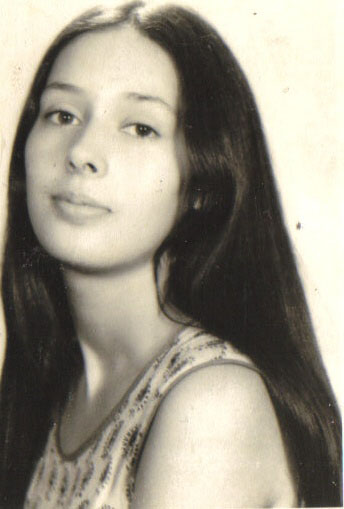
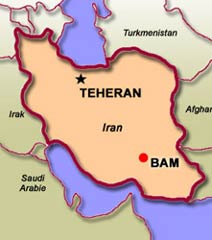 he did architectural work with one of the women. It took about
three months or so to get my visitors pass. At first, I thought I
was just visiting, later I got my residency. I moved here in 1978
and lived with my brother, who is about 12 years older than me. It
was him who told my father to moved me here since he was here, and
my father knew that I respected my older brother and would listen to
him. My father and I boarded a plane that year and the flight from
Tehran lasted about 34 hours, there was a layover in London. At
first I was angry t
he did architectural work with one of the women. It took about
three months or so to get my visitors pass. At first, I thought I
was just visiting, later I got my residency. I moved here in 1978
and lived with my brother, who is about 12 years older than me. It
was him who told my father to moved me here since he was here, and
my father knew that I respected my older brother and would listen to
him. My father and I boarded a plane that year and the flight from
Tehran lasted about 34 hours, there was a layover in London. At
first I was angry t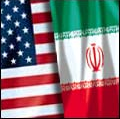 hat
my father was doing this to me. I feared that I would have no
friends or boyfriends and that no one would like me. I was afraid
because I did not know the language. The first stop in the US was
New York, I fell in love with it. Since I arrived on the fourth of
July I just figured the US was a party city and that all the time
there were fireworks and parties. I got a reality check when we
continued our flight into Kansas and I realized that I was here, in
the middle of nowhere next to cows and farms and things were going
to be a lot different.
hat
my father was doing this to me. I feared that I would have no
friends or boyfriends and that no one would like me. I was afraid
because I did not know the language. The first stop in the US was
New York, I fell in love with it. Since I arrived on the fourth of
July I just figured the US was a party city and that all the time
there were fireworks and parties. I got a reality check when we
continued our flight into Kansas and I realized that I was here, in
the middle of nowhere next to cows and farms and things were going
to be a lot different. 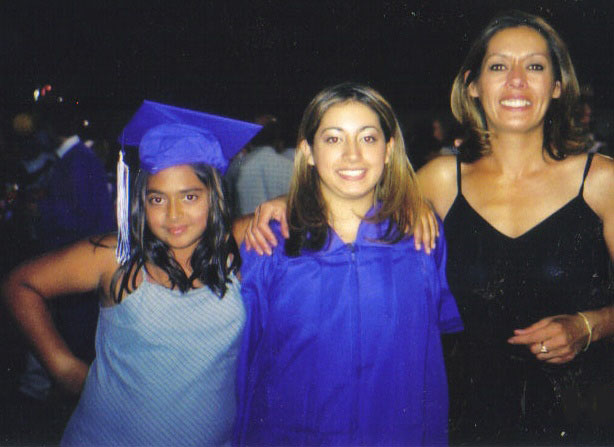 ng
the same thing. I got married at age 20, had my first daughter at
23 and basically was ready to call the US my home. I would visit
now and again but I really have and had no intentions of moving
back. I still have my beliefs in the Muslim religion, and practice
holidays, but I also am open minded about the traditions here in the
United States. I have rarely experienced discrimination for my
beliefs, and I have found that if you are open minded with people
and their beliefs, they will be open minded as well. I have learned
a lot about people from my journey.
ng
the same thing. I got married at age 20, had my first daughter at
23 and basically was ready to call the US my home. I would visit
now and again but I really have and had no intentions of moving
back. I still have my beliefs in the Muslim religion, and practice
holidays, but I also am open minded about the traditions here in the
United States. I have rarely experienced discrimination for my
beliefs, and I have found that if you are open minded with people
and their beliefs, they will be open minded as well. I have learned
a lot about people from my journey.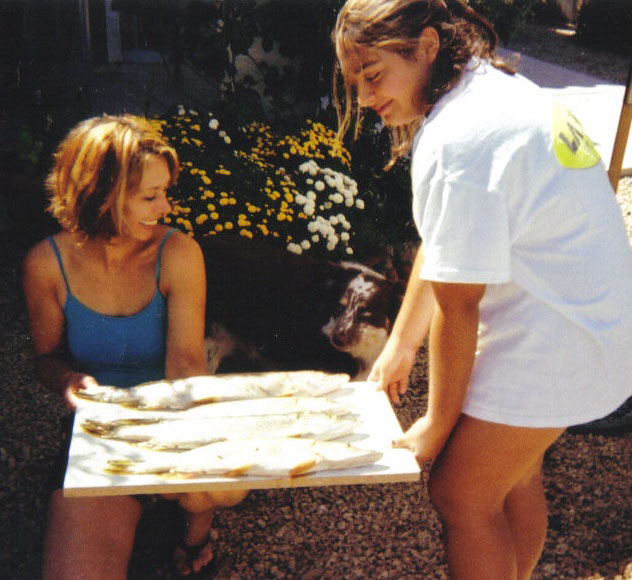 wish that my children grow up and be successful. I have learned
that the biggest thing in the United States is to be friendly and
give everyone a chance to state their opinions. You learn a lot
about people from their backgrounds, and I really believe that no
matter where you are in the world, you can achieve any dream, but
the opportunities in the United States are definitely a bit greater.
wish that my children grow up and be successful. I have learned
that the biggest thing in the United States is to be friendly and
give everyone a chance to state their opinions. You learn a lot
about people from their backgrounds, and I really believe that no
matter where you are in the world, you can achieve any dream, but
the opportunities in the United States are definitely a bit greater.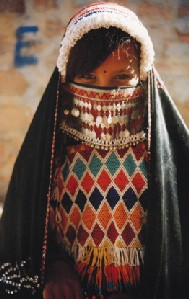 to
be seen without a shawl over her head and fully clothed, she is
shunned upon and looked at as a whore, and in a lot of cases she can
get into trouble for not covering her face and often is harassed.
An example of this is explained in the book In and out of Morocco
by David A. McMurray regarding Nadori women who paraded in the
streets of Morocco after an independence movement. Murray makes a
point about how women who wore pants were harassed. He states,
“After independence, the girls on the street who wore European
fashions were hounded back indoors by bands of boys…they threw
stones at girls and yelled.” Power struggles between men and women
exist all over the world. Even among the Hmong refugees from Laso
that live in Wisconsin. The Hmong women often took up duties that
men felt lower status. The author of the book New Pioneers in
the Heartland, Hmong Life in Wisconsin by Joann Koltyk, states
that, “Unlike men, who may refuse to work that appears to lower
their status; Hmong women are more flexible and apt to take jobs
that bring money in the household without regard to status. The
majority of the jobs for women were seasonal and agricultural.”
Obviously, these facts show that a power struggle that exists
between men and women in many countries, especially in the Middle
East. Which is one of the reasons my mother came to the United
Stated from Iran, although there were many other, such as money.
to
be seen without a shawl over her head and fully clothed, she is
shunned upon and looked at as a whore, and in a lot of cases she can
get into trouble for not covering her face and often is harassed.
An example of this is explained in the book In and out of Morocco
by David A. McMurray regarding Nadori women who paraded in the
streets of Morocco after an independence movement. Murray makes a
point about how women who wore pants were harassed. He states,
“After independence, the girls on the street who wore European
fashions were hounded back indoors by bands of boys…they threw
stones at girls and yelled.” Power struggles between men and women
exist all over the world. Even among the Hmong refugees from Laso
that live in Wisconsin. The Hmong women often took up duties that
men felt lower status. The author of the book New Pioneers in
the Heartland, Hmong Life in Wisconsin by Joann Koltyk, states
that, “Unlike men, who may refuse to work that appears to lower
their status; Hmong women are more flexible and apt to take jobs
that bring money in the household without regard to status. The
majority of the jobs for women were seasonal and agricultural.”
Obviously, these facts show that a power struggle that exists
between men and women in many countries, especially in the Middle
East. Which is one of the reasons my mother came to the United
Stated from Iran, although there were many other, such as money.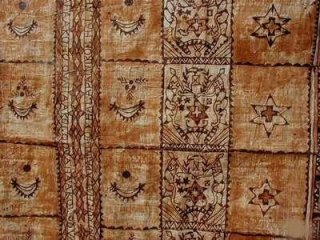 was
associated with people of status. Having and serving imported food
as the turn of the century was a sign of great resources, and it
signaled a higher more prestigious and cheif-like lifestyle.” It is
often this chief like lifestyle that encourages others to explore
new opportunities in other areas of the country, where they can
increase their status and expand their collection of desired
belongings. It is a fact that individuals leave their countries to
come into other countries with better economies, such as the United
States, so that they have more opportunities to increase their
income.
was
associated with people of status. Having and serving imported food
as the turn of the century was a sign of great resources, and it
signaled a higher more prestigious and cheif-like lifestyle.” It is
often this chief like lifestyle that encourages others to explore
new opportunities in other areas of the country, where they can
increase their status and expand their collection of desired
belongings. It is a fact that individuals leave their countries to
come into other countries with better economies, such as the United
States, so that they have more opportunities to increase their
income. 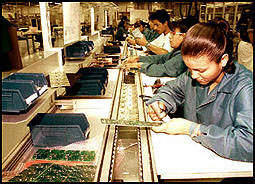 money
in a forty hour work week to survive, and the money that they do
make goes strictly towards their necessities. In most cases also,
women immigrants get the bitter end once they workers enter the
U.S. They are often “shunned into sweatshop apparel or servile
house-cleaning jobs that offer the lease opportunity” as stated by
Mike Davis in his article Magical urbanism: Latinos Reinvent the
U.S. City. Although many opportunities may be greater in other
countries, it does not mean that life will be easy once entered into
the U.S., as my mother realized.
money
in a forty hour work week to survive, and the money that they do
make goes strictly towards their necessities. In most cases also,
women immigrants get the bitter end once they workers enter the
U.S. They are often “shunned into sweatshop apparel or servile
house-cleaning jobs that offer the lease opportunity” as stated by
Mike Davis in his article Magical urbanism: Latinos Reinvent the
U.S. City. Although many opportunities may be greater in other
countries, it does not mean that life will be easy once entered into
the U.S., as my mother realized.